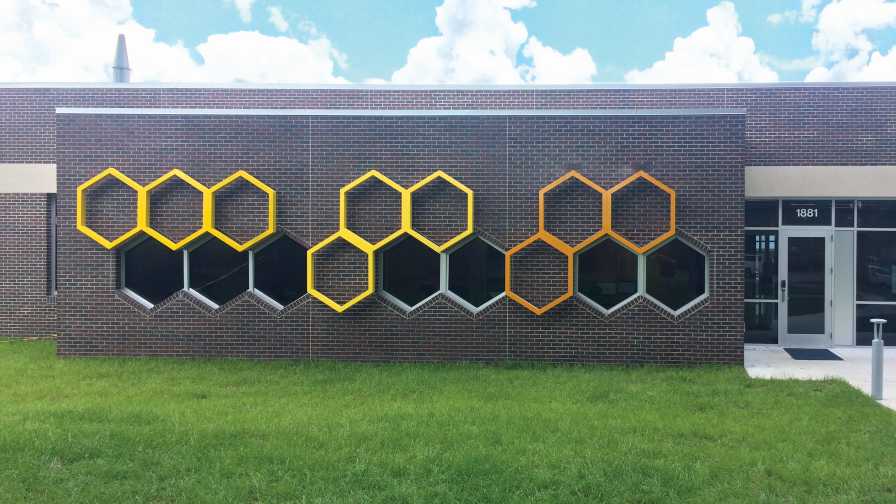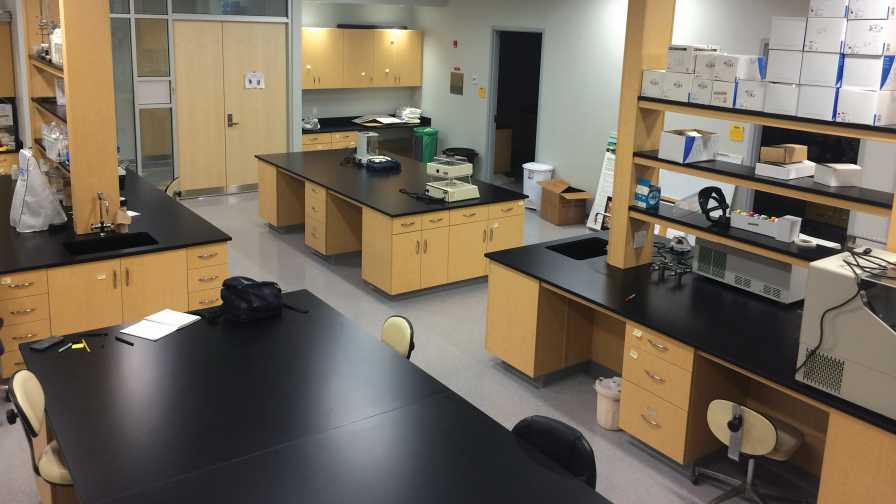New Honeybee Lab in Florida Creating a Buzz

The new UF/IFAS honeybee lab and campus is home to three buildings, covering 16,000 square feet.
Photo courtesy of UF/IFAS
Florida is known for its citrus, sweet corn, beans, tomatoes, strawberries, watermelons, and much more, but its place in the world of beekeeping is often overlooked. Honeybees are big business in Florida. Every year, roughly 650,000 bee colonies make a stop in Florida in their rounds across the country, pollinating many major specialty crops. That number accounts for about 25% of all the pollinators in the U.S. In Florida, there are about 4,500 beekeepers, of which about 900 are commercial.
Keeping bees healthy and productive got a major boost recently with the opening of the University of Florida’s state-of-the-art honeybee lab and research facility. The new lab, called the Honey Bee Research and Extension Laboratory, is located on UF’s Gainesville campus. The facility consists of three buildings and covers 16,000 square feet.
Third Time is the Charm
Jamie Ellis, an Associate Professor with UF/IFAS, will be directing activities at the research lab. He says the idea for the facility was hatched about five years ago when he met with a few beekeepers about the idea of hosting a world-class bee lab in Florida. Word made its way to the Florida State Beekeepers Association (FSBA), which took up the cause to help get funding to build the lab.
Original designs put the cost of the lab at about $3.5 million. After Gov. Rick Scott vetoed funding for the lab twice, a third approach was offered that the state would fund $2 million to the cause, UF would put up $500,000, and FSBA would need to generate $200,000 toward the effort.
“The first day we were eligible to access the state funds, a beekeeper here in Florida put down the $200,000 required to release the state funds,” Ellis says. “So, we were off and running.”
The original design had grown in scope, along with the price tag for the lab now at $4.5 million. The FSBA upped its contribution to more than $1 million, and UF brought its funding up to more than $1 million.
“This is a very clear example of a public/private partnership where there was a need identified by the beekeepers,” Ellis says. “They came to UF and the state, who were great partners in pulling this thing off,” Ellis says.

Major research initiatives at the new UF/IFAS honeybee lab will focus on Varroa mite, bee nutrition, and queen health.
Photo courtesy of UF/IFAS
The Big Targets
While the lab will focus on many projects, Ellis says a major priority will be placed on three areas.
Varroa mite: These tiny ectoparasites feed on bees and transmit various pathogens to the insects. Ellis likens the mite to the Asian citrus psyllid, which spreads greening to citrus.
“There is no question these mites are the No. 1 killer of honeybees on the planet,” he says. “All beekeepers in the U.S. must actively manage for these mites. Complicating matters is the European honeybee, which we keep. It’s not the natural host of the Varroa mite, so there is no natural, built-in immunity.”
Nutrition: Honeybees are generalist foragers that visit many different types of plants to feed on a variety of proteins and nutrients they need for good health. But, in the commercial realm, this is not how they are used.
“We move these hives from Florida and put them on an almond orchard in California for four weeks and they get almond pollen and nectar,” Ellis says. “Then it is off to blueberries, watermelons, and other crops. Many of these crops are poor resources for bees when it comes to pollen and nectar. Beekeepers spend a lot of time feeding their hives supplemental nutrition. We will be looking for ways to improve their nutrition even more.”
Queen health: Beekeepers have observed that queen quality has declined in the past couple of decades. While it is hard to quantify, Ellis says they don’t seem to live as long, and the quality of their egg output and offspring is off.
“Where you might have a good queen last more than a year, (up to two years before), these days, she might live six to eight months — maybe a year if you are lucky,” he says. “And, the individuals the queen is producing don’t seem to have the disease and pest tolerance they once had.”
Ellis says the new lab will dedicate much of its resources and space to these beekeeping foes. Another area of study will include pesticide impacts on bees. The lab also has a honey extraction facility to study quality and production.
Overall, the goal is to reduce bee colony losses, which are still high — averaging 30% annually.
“In my opinion, if we can address the Varroa mite, along with the nutrition and queen issues, we will have addressed the major stressors causing colony loss to a point where the rest of the stressors might be considered minor.”
The Place to Be
Ellis said the new bee lab should be considered more of a bee campus. The university’s bee program has already drawn scholars from around the world to do research in Gainesville. The climate lends itself to a long research season, and the school’s entomology department was voted No. 1 in the world last year by the Center for World University Rankings. The addition of the lab makes it a one-stop shop for all things honeybee research, from the cutting edge to real-world applied science.
“We have an extremely supportive beekeeping industry here,” Ellis adds. “The university and state are behind us. It is as if the stars have aligned, and this is the place to do bee research. We are very excited about that.”
An official grand opening will be hosted at the lab on August 24 and an open house will follow the next day.
For more information, visit UFhoneybee.com.










